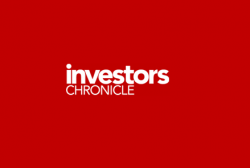By Val Cipriani, Investors Chronicle, August 8, 2023:
Private equity trust valuations have broadly held up so far this year despite higher interest rates leading to pessimism and huge discounts across the sector.
Private equity net asset values (NAVs) are published with a few months of delay, so most of the data currently available refers to the first quarter of 2023. These were generally positive if not universally strong, and in some cases impacted by the recent strength of the pound against the dollar.
Among the trusts investing directly in private companies, HgCapital Trust (HGT) reported NAV total returns of 4 per cent in the first quarter of the year, while NB Private Equity Partners (NBPE) stood at 1 per cent in dollar terms in the year to June 2023, with 80 per cent of portfolio valuations dating back to 31 March.
A few of the direct trusts also published Q2 updates. Oakley Capital Investments (OCI) reported a 0.5 per cent NAV total return in the six months to June 2023 and Princess Private Equity (PEY) returned 3.5 per cent over the same period in euro terms. Apax Global Alpha’s (APAX) NAV was up 0.4 per cent in euro terms but down 1.7 per cent in sterling terms in the second quarter of the year…
Pantheon International’s (PIN) NAV as at 31 May, made up of mostly 31 March valuations, was up 2.1 per cent. ICG Enterprise (ICGT) had a weaker quarter, delivering a NAV total return of -1.1 per cent in the three months to April 2023. Abrdn Private Equity Opportunities’ (APEO) NAV was slightly up, while HarbourVest Global Private Equity’s (HVPE) was up in dollar terms but down in sterling.
James Carthew, head of investment company research at QuotedData, said 2023 had been more subdued than 2022 for private equity, mostly due to the lack of exits via initial public offerings (IPOs). “Private equity funds are sitting on many companies in their portfolios that they are ready to sell on and would ideally have liked to IPO,” he argued. Higher debt costs reducing sales to other private equity firms played a part too, as did wealth managers partially pivoting towards bonds now that higher rates are available.
Read more here
